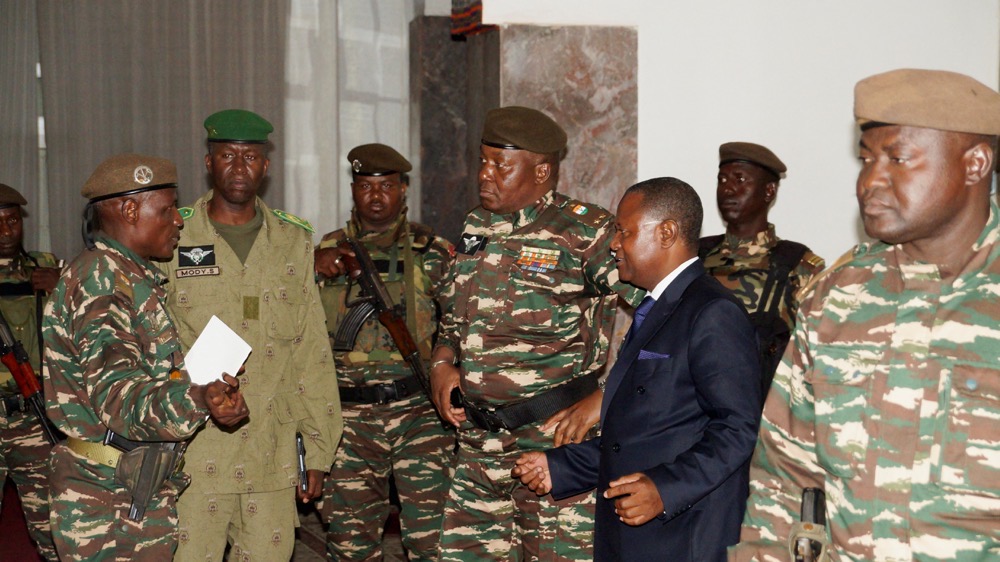In a tense escalation of events, Nigers political landscape stands at a crossroads as the critical deadline imposed by a coalition of African nations for the release of power by the military coup leaders approaches. As this deadline neared its expiration, Nigers airspace abruptly shut down, citing the ominous “threat of intervention from neighboring countries.” These developments unfolded against the backdrop of a military coup that had been set into motion late in July, culminating in the seizure of President Mohamed Bazoum and the subsequent shutdown of national institutions.
Deadline Looms: Niger’s Airspace Closes Amidst Political Tensions
With a sense of urgency permeating the air, Nigers airspace effectively closed on the designated day set by the coalition of African countries. This day marked the ultimatum for the Nigerien military coup leaders to relinquish their control and restore power to the democratically-elected president. As the deadline drew to a close, Colonel Major Amadou Abdramane, the leader of the coup, delivered a video statement broadcasted on state television. In it, he reveal that the closure of Nigers airspace was driven by the perceived “threat of intervention from neighboring countries.”
Coup Unfolds: Chaos and Contention
The seeds of the current crisis were sown with the initiation of the military coup in late July. President Mohamed Bazoum found himself in the clutches of the presidential guard, a move that prompted the shutdown of crucial national institutions. The ensuing chaos saw citizens from opposing sides of the political spectrum taking to the streets, including both pro-coup demonstrators and those seeking the reinstatement of democratic governance.
Global Condemnation and Regional Pressure
While the coup leaders may have garnered some support within Niger, the international community responded with swift condemnation. The United States and several Western nations were quick to voice their disapproval of the coup. Moreover, a coalition of Western African countries expressed their opposition, along with the threat of potential military action. The Economic Community of West African States (ECOWAS), a regional bloc, took center stage. They are issuing a stern ultimatum: unless the military junta surrenders power, the possibility of military intervention looms.
ECOWAS’ Ultimatum: A Last Resort and Forceful Warnings
In an effort to restore constitutional order, ECOWAS granted the coup leaders a deadline, which has now expired. The bloc has indicated its readiness to take “all measures necessary,”. Ths is including the use of force, if the junta fails to step down. This stern stance was further underscore by travel bans. The asset freezes impose on military officials involved in the coup attempt, as well as their family members and civilians link to the officials’ newly established institutions or government.
Global Ramifications: Financial Aid Cuts and Support Demonstrations
Beyond regional repercussions, the global community’s response reverberated. France and the European Union responded to the coup by suspending financial aid to Niger. In Niger’s capital, Niamey, thousands took to the streets in support of the junta and voiced their opposition against the sanctions imposed by ECOWAS. The tension and divisions within the country reflect the multifaceted nature of the crisis.
A Veiled Warning: The Junta’s Defense Stance
The junta, undeterred by the mounting international pressure, took to state television to issue a veiled warning. In a display of defiance, they emphasize that any military intervention would be meet with an “immediate and unannounce response” from Niger’s defense and security forces. This statement underscores the junta’s resolve to maintain their hold on power, even in the face of potential military intervention.
ECOWAS’ Strategic Planning: A Potential Military Response
In an attempt to orchestrate a collective response to the crisis, ECOWAS leaders convened in Nigeria prior to the deadline. Their objective was to lay the groundwork for a potential military intervention as a last resort. Abdel-Fatau Musah, ECOWAS Commissioner for Political Affairs, Peace, and Security. He indicates that extensive preparations had been undertake. It is including strategic planning for the deployment of a military force if deemed necessary.
As the clock ticked down on the ultimatum, Niger held its breath. They are navigating the delicate balance between political turmoil and regional intervention. The closure of airspace and the looming specter of military intervention serve as stark reminders of the fragility of democracy and the complexities inherent in seeking a resolution to this crisis.
